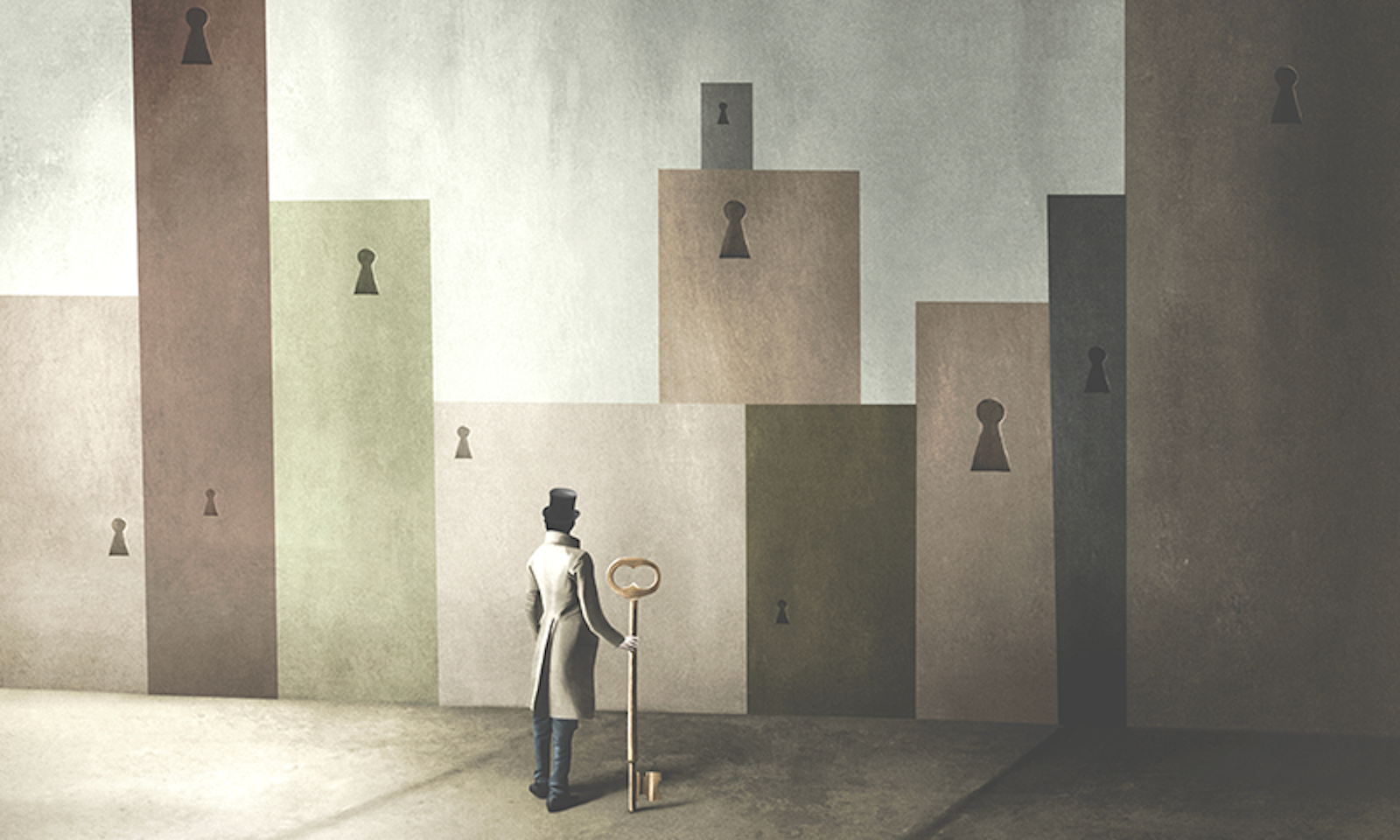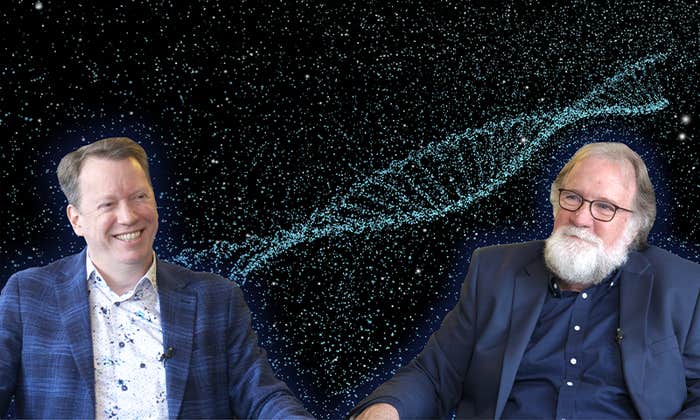One of my favorite TV shows as a teenager was a series called Arthur C. Clarke’s Mysterious World. This was a 13-part British television series looking at all manner of unexplained events, weird phenomena, and urban myths from around the world, introduced by the famous science-fiction writer and futurist Arthur C. Clarke. The series divided up its subject matter into three categories of mysteries.
Mysteries of the First Kind are phenomena which were inexplicable and baffling to our ancestors but are now well understood, mostly thanks to the knowledge we’ve gained through modern science. Obvious examples include natural phenomena like earthquakes, lightning, and pandemics.
When mysteries cross over to dangerous irrationalities, they can have detrimental effects on our well-being.
Mysteries of the Second Kind involve phenomena that are yet to be explained, but which we are confident have rational explanations that we hope to find one day. These phenomena are only mysteries because we have yet to understand them. Examples might include the original purpose of Stonehenge, the prehistoric circle of giant stones in Wiltshire in England; or in physics, the nature of dark matter, the invisible substance that holds galaxies together.
Mysteries of the Third Kind include phenomena for which we have no rational explanation, nor can we see how we could ever have one without rewriting the laws of physics. Examples include psychic phenomena, accounts of ghosts and other-worldly apparitions, alien abductions or fairies at the bottom of the garden, all of which not only fall outside of mainstream science, but which have no basis in reality.

It is this third category that many people understandably find the most fascinating; in fact, the stranger the mystery, the better. Of course, none should be taken too seriously, since they can all be explained away rationally, but where is the fun in that? Mysteries of the Third Kind are not true mysteries; they are fictions—stories we have shared with each other across cultures and across the ages. Some of them may at one time have been considered Mysteries of the Second Kind, when there might have been hope of a rational explanation. Yet they remain important to us—even after we’ve learned that they are not true—as mythologies, folklore, and fairy tales, and of course fodder for Hollywood movies, for without them our lives would be poorer.
It is when Mysteries of the Third Kind cross over from harmless beliefs (like the existence of ghosts, fairies, angels, or alien visitors) into dangerous irrationalities that they can have detrimental effects on our well-being, such as when those claiming to have psychic powers dupe the innocent and vulnerable, or when those peddling alternative therapies and quack remedies denounce established medical treatments or refuse their children vital vaccines. That is when we can no longer stand by and do nothing.
One of the most surprising things at the heart of science is that the laws of nature are logical and comprehensible. But it need not have been so. Before the birth of modern science, our beliefs were ruled by myths and superstition (Mysteries of the First Kind)—the world was unfathomable and inexplicable, known only to a divine higher power. We were content with the mysteries we encountered, and even celebrated our ignorance. But modern science has shown us that by being curious about the world—by asking questions and making observations—we discover that what was once a mystery can be understood and explained rationally.
Some people argue that the cold rationalism of science leaves no room for romance or mystery. Nervous about the rapid advance of science, they feel that the act of searching for answers to things we do not yet understand somehow detracts from their awe and wonder. One reason for this view may be because modern science has shown the universe to have no purpose or end goal, and that humans have evolved on Earth through the process of natural selection based on random genetic mutations and survival of the fittest. This is seen as too bleak an explanation for our existence and implies that our lives have no meaning. When I have found myself explaining my work to non-scientists at social gatherings or dinner parties I have sometimes been made to feel like the “learn’d astronomer” in Walt Whitman’s poem1—a killjoy, ruining the magic and romance of the stars with tiresome logic and rationalism. But to think that way is misplaced. Many scientists like to quote the American physicist Richard Feynman, who was frustrated by an artist friend of his who could not appreciate what science can give us:
Poets say science takes away from the beauty of stars—mere globs of gas atoms. Nothing is ‘mere’. I too see the stars on a desert night and feel them. But do I see less or more? . . . What is the pattern, or the meaning, or the why? It does not do harm to the mystery to know a little more about it. For far more marvellous is the truth than any artists of the past imagined it. Why do the poets of the present not speak of it?
Unlocking nature’s secrets requires inspiration and creativity no less impressive than anything in art, music, or literature. The sense of wonder at the nature of reality that science continues to reveal is the polar opposite of the dry, hard facts that some imagine science to be.
You might be surprised to know that many particle physicists were secretly hoping that the famous Higgs particle, discovered at the Large Hadron Collider in 2012, would in fact not be found—that despite our best mathematical theories of the fundamental constituents of matter predicting its existence, and despite the years of effort and billions of dollars spent building one of the most ambitious science facilities the world has ever known to hunt for it, it would have been even more exciting if we had confirmed its nonexistence!
You see, if the Higgs didn’t exist, then this would have meant that there was a flaw in our understanding of the fundamental nature of matter and that we would have needed to find a different explanation for the properties of elementary particles—an exciting new mystery to solve. Instead, the discovery confirmed what we already suspected. To the curious scientist, verifying an anticipated prediction is less thrilling than a truly unexpected discovery. Now, I don’t want to give you the impression that physicists were unhappy about the confirmation of the Higgs. We still celebrated its discovery, for learning more about the universe, whether the result is a surprise or not, is always better than remaining in ignorance.
You might be surprised that many particle physicists were secretly hoping the Higgs particle would not be found.
Striving to understand the world around us is a defining feature of our species, and science has given us a means to achieve this. But it allows us to do more than simply solve scientific mysteries just for the sake of it; it has also ensured the survival of the human race. Let us go back to the 14th century—a time before modern science—and consider the horrific devastation of the Plague (also known as the Black Death), which, together with the Great Famine that had taken place a few decades earlier, killed up to half the population of Europe.
Apart from the terrible loss of human life, the Plague had huge social consequences. Without the benefits of a modern scientific understanding of the disease (or the bacterium, Yersinia pestis, that caused it)—let alone antibiotic medications to treat the sick—many people turned instead to religious fanaticism and superstition. And since no amount of prayer seemed to help, they believed that the epidemic therefore had to be a punishment by God for their sins. Many reacted in horrific ways in an attempt to gain God’s forgiveness, for example by scapegoating and killing those they perceived as heretics, sinners, and outsiders: Romani, Jews, friars, women, pilgrims, lepers, and beggars—it didn’t matter. But remember, this was the medieval world, when most occurrences were attributed to magic or the supernatural. You might argue that they simply didn’t know any better.
Fast-forward seven centuries to the modern world and the way humanity has dealt with the COVID-19 pandemic. Science has enabled us to understand the coronavirus that caused it, and scientists quickly mapped its genetic code in detail. This allowed for a range of vaccines to be developed, each delivering in its own clever way the genetic instructions to the cells in our bodies to manufacture the molecular ammunition (the antibodies) to protect us against the virus if it ever did attack us. Today, diseases are no longer a mystery. Most of us don’t have a deep knowledge of the nature of the coronavirus or the disease it causes and how that spreads. However, we are grateful to those who have solved this mystery, and it is a sad indictment of the modern world that there are still many who prefer to reject this knowledge, even while arguing that they are themselves being rational and enlightened.
Nothing expresses more clearly the importance of curiosity about the world and the value of enlightenment over ignorance than Plato’s Allegory of the Cave. It goes something like this. A group of prisoners have lived all of their lives chained to the floor of a cave, facing one of its walls such that they are unable to turn their bodies or heads around. Behind them and unbeknownst to them there is a burning fire and a steady stream of people passing in front of it, thus casting shadows on the wall that the prisoners are facing. For the prisoners, these shadows represent their entire reality, for they are unable to see the real people behind them who are making the shadows. The sounds of the people talking are heard by the prisoners who, because of the echoes around the cave, are fooled into thinking they are coming from the shadows themselves.
One day, one of the prisoners is set free. When he steps outside the cave he is first blinded by the bright sunlight and it takes him time to adjust. Eventually, he begins to see the world as it really is, with three-dimensional objects and light reflecting off of them. He learns that shadows are not objects in themselves but only formed when solid objects block the passage of light. He also learns that this outside world is superior to the one he had experienced inside the cave.
When given the opportunity, he goes back inside the cave to share his experience with the other prisoners, whom he pities for not having experienced true reality, only their limited one. But the prisoners think that their returning friend is insane and refuse to believe him. And indeed, why would they? The shadows they see are all they have ever known, and they cannot comprehend another version of reality, so they have no reason to be curious about the origin of the shadows or how they are formed by the interplay between light and solid matter. Can one argue that their reality, their truth, is as valid as his? Of course not.
If there’s strong scientific evidence that an unexplained phenomenon is real, that’s the most exciting outcome of all.
According to Plato, the prisoners’ chains represent ignorance, and we cannot blame them for accepting their limited reality at face value based on the evidence and experiences they have, but we also know that there is a deeper truth. Their chains stop them from being able to seek this truth.
In the real world, our chains are not so restrictive, for we can be curious about the world and we can ask questions. Like the freed prisoner, we know that whatever reality we are experiencing, we may still have a limited perspective. We are viewing reality from one frame of reference. In other words, even the freed prisoner might reflect on the possibility that he has simply stepped into a larger ‘cave,’ which is still not showing him the ‘complete’ picture. Likewise, we should acknowledge that our view of reality might also be limited, since mysteries still exist. However, we should not be content with accepting these mysteries but should always try to gain a deeper understanding.
Although Plato’s allegory of the cave goes back over two millennia, there are modern versions of it, particularly as depicted in a number of Hollywood movies, such as The Truman Show and The Matrix. In both these films, a curiosity about the nature of reality leads to enlightenment—to seeing things as they really are. Whether that is itself the ultimate reality or not, it is still a step closer to the truth and is thus always preferable to remaining in ignorance.
My point is that science does not try to dismiss mysteries, as some people might claim. In fact, quite the opposite: It acknowledges that the world is full of mysteries and puzzles that it then tries to understand and solve. If there is strong scientific evidence that an unexplained phenomenon is real, and yet it does not fit into the existing body of knowledge, then that is the most exciting outcome of all, for it points to new discoveries and new knowledge to be gained. Put another way, the enjoyment we derive from doing a jigsaw puzzle is the process of connecting the pieces together. Once it is finished there is a short-lived sense of satisfaction in being able to admire the complete picture, but that doesn’t last very long. In fact, if we’re keen on jigsaws, we’d already be looking forward to starting a new one. This should apply in everyday life too. There are many mysteries out there, but their true appeal is in trying to solve them, not in leaving them be.
We all constantly encounter things in life that we do not understand, that are new or unexpected. This is not something to lament or fear. Encounters with the unknown are normal and you don’t need to shy away from them. At the heart of science is curiosity—to question, to want to know. We are all born scientists; as children we learn to make sense of our world by exploring and asking questions all the time. Thinking scientifically is in our DNA. Why then do so many of us stop being curious about the world when we reach adulthood, becoming complacent, content even, about that which we don’t understand?
It need not be this way. We should all ask questions when faced with a mystery, to free ourselves from the ‘chains’ of ignorance and look around us. Ask yourself whether you are seeing the whole picture and how you might find out more.
I am not suggesting, of course, that everyone has to always be on the lookout for things to understand and explain; after all, some people are just less curious than others—and daily life might get a bit intractable if we all behaved in the same way, going around poking our noses into everything, tilting at windmills, not accepting stuff we don’t understand even when we know there are people who do understand it, feeling compelled to reinvent the proverbial wheel over and over. In any case, most people don’t have the luxury of time or resources to go around solving mysteries all the time, even if they wanted to. If you fall into this category, then what is the value of this lesson to you? If you are ever faced with the inexplicable or the bizarre, then of course, it can often be more fulfilling to simply enjoy the mystery—like a fun or perplexing conjuring trick that would be spoiled if we knew how it was done—and that is just fine. But be aware that there are plenty of other examples in daily life that would give you greater joy and fulfillment if you were able to understand them. Enlightenment is almost always preferable to ignorance. If you’re unshackled from your chains, take that opportunity to step outside of the cave and into the light of the sun. ![]()
Jim Al-Khalili is Distinguished Professor of Theoretical Physics at the University of Surrey and one of Britain’s best-known science communicators. He has written numerous books, including The World According to Physics; Quantum: A Guide for the Perplexed; and Life on the Edge: The Coming of Age of Quantum Biology. He is a fellow of the Royal Society and lives in Southsea, England. Twitter @jimalkhalili
Adapted from The Joy of Science by Jim Al-Khalili. Copyright © 2022 by Jim Al-Khalili. Reprinted by permission of Princeton University Press.
Lead image: Fran_kie / Shutterstock
References
1. Whitman, W. “When I Heard the Learn’d Astronomer” (1867).


























